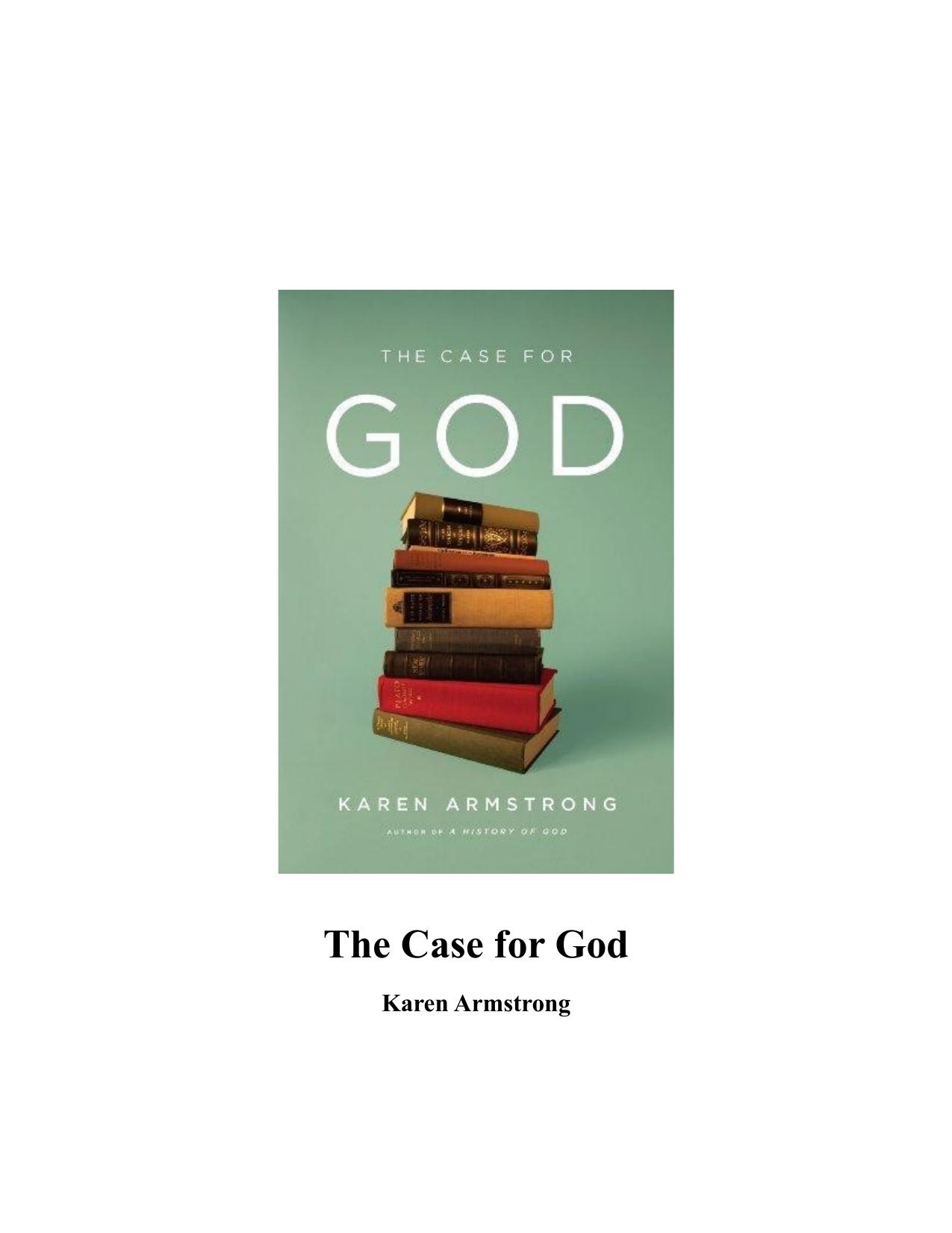The Case for God by Karen Armstrong

Author:Karen Armstrong
Language: eng
Format: mobi, epub, pdf
Tags: Christian Life, Religion, Electronic books, god, Philosophy, Apologetics, Religious life, God (Christianity), Religious, Christian Theology, History
ISBN: 9780307272928
Publisher: Random House, Inc.
Published: 2009-08-15T07:00:00+00:00
In the Netherlands, a Jewish philosopher had developed an atheistic vision that was at once more radical yet also more religious than either Descartes’ or Locke’s.35 In 1655, shortly after Prado had arrived in Amsterdam, the young Baruch Spinoza (1632–77) stopped attending services and began to voice serious doubts about traditional Judaism. Spinoza had been born in Amsterdam of parents who had lived as Marranos in Portugal but had successfully adapted to Orthodox Judaism. He had always had access to the intellectual life of the gentile world and had received a traditionally Jewish education, as well as studying mathematics, astronomy, and physics. But, living in a Marrano environment, he was accustomed to the idea of an entirely rational religion and argued that what we call “God” was simply the totality of nature itself. Eventually, on July 27, 1656, the rabbis pronounced the sentence of excommunication on Spinoza too, and he was glad to go. As a genius with powerful friends and patrons, he could survive outside a religious community in a way that his predecessors could not, and he became the first thoroughgoing secularist to live beyond the reach of established religion. Yet he remained an isolated figure, since Jews and gentiles both found his pantheistic philosophy shocking and “atheistic.”
Spinoza shared the Marrano disdain for revealed religion, though he agreed with Descartes that the very idea of “God” contains a validation of God’s existence. But this was not the personalized God of Judeo-Christianity. Spinoza’s God was the sum and principle of natural law, identical with and equivalent to the order that governs the universe. God was neither the Creator nor the First Cause, but was inseparable from the material world, an immanent force that welded everything into unity and harmony. When human beings contemplated the workings of their minds, they opened themselves to the eternal and infinite reality of the God active within them. Spinoza experienced his philosophical study as a form of prayer; the contemplation of this immanent presence filled him with awe and wonder. As he explained in his Short Treatise on God (1661), the deity was not an object to be known but the principle of our thought, so the joy we experienced when we attained knowledge was the intellectual love of God. A true philosopher should cultivate intuitive knowledge, flashes of insight that suddenly fused all the information he had acquired discursively into a new and integrated vision, an ekstatic perception that Spinoza called “beatitude.”
Download
The Case for God by Karen Armstrong.epub
The Case for God by Karen Armstrong.pdf
This site does not store any files on its server. We only index and link to content provided by other sites. Please contact the content providers to delete copyright contents if any and email us, we'll remove relevant links or contents immediately.
The Lost Art of Listening by Michael P. Nichols(6462)
Why I Am Not A Calvinist by Dr. Peter S. Ruckman(3767)
The Rosicrucians by Christopher McIntosh(3047)
Wicca: a guide for the solitary practitioner by Scott Cunningham(2702)
Signature in the Cell: DNA and the Evidence for Intelligent Design by Stephen C. Meyer(2496)
Real Sex by Lauren F. Winner(2466)
The Holy Spirit by Billy Graham(2408)
To Light a Sacred Flame by Silver RavenWolf(2350)
The End of Faith by Sam Harris(2279)
The Gnostic Gospels by Pagels Elaine(2023)
Nine Parts of Desire by Geraldine Brooks(2002)
Waking Up by Sam Harris(1953)
Heavens on Earth by Michael Shermer(1950)
Devil, The by Almond Philip C(1896)
Jesus by Paul Johnson(1882)
The God delusion by Richard Dawkins(1843)
Kundalini by Gopi Krishna(1821)
Chosen by God by R. C. Sproul(1755)
The Nature of Consciousness by Rupert Spira(1687)
